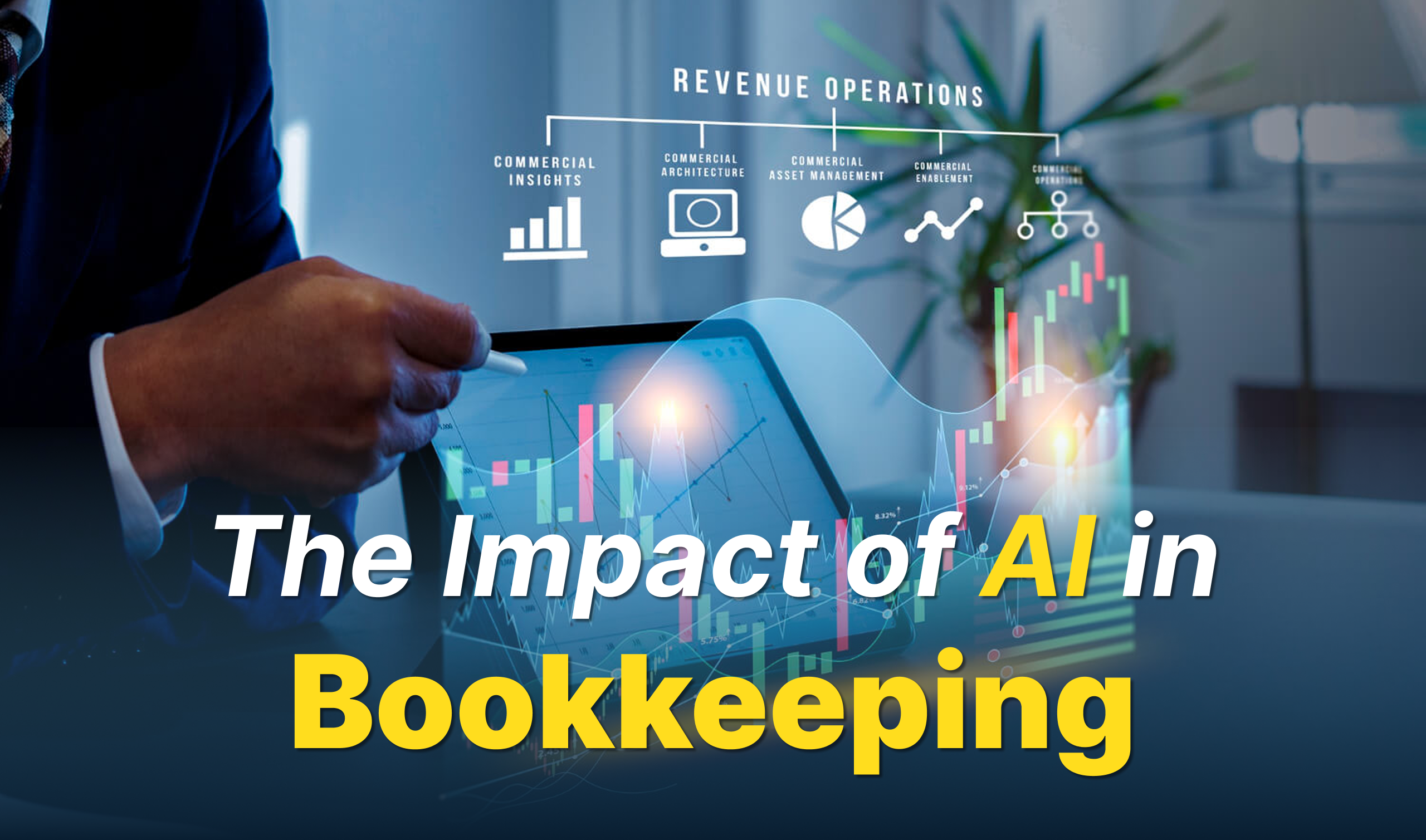Did you know that artificial intelligence (AI) can automate up to 95% of accounting tasks? This surprising fact is transforming the world of bookkeeping as we know it. Gone are the days of manual data entry and endless hours spent on repetitive tasks.
I’m excited to share how AI and automation are reshaping the future of bookkeeping. In this article, we’ll explore the key areas where AI is making a big impact, the benefits for business, and how the role of bookkeepers is evolving in this new landscape.
Table of Contents
AI’s Impact On Accounting
AI and automation in accounting are primarily about streamlining repetitive tasks the have traditionally consumed hours of a bookkeeper’s/accountants time. These technologies are not just improving efficiency; they’re fundamentally changing the role of bookkeepers/accountants in the modern business world.
Key AI Applications
- Data Entry and Management: AI-Powered systems can automatically input and categorize financial data from various sources, significantly reducing manual data entry errors.
- Invoice Processing: Automated system can read, process, and file invoices with minimal human intervention.
- Receipt Reconciliation: AI can match receipts with transactions, making expense tracking a breeze.
- Account Reconciliation: Automated systems can compare and match financial records from different sources to ensure accuracy.
- Financial Reporting: AI can generate comprehensive financial reports in seconds, providing Realtime insights into a company’s financial health.
Benefits of AI in Finance
The integration of AI in bookkeeping offers numerous advantages for business of all sizes:
- Increasing Accuracy: By reducing human error, AI significantly improves the accuracy of financial records.
- Time Saving: Automation of routine tasks frees up bookkeepers to focus on more strategic roles.
- Cost Reduction: With AI handling many tasks, businesses can operate with leaner accounting teams.
- Real-Time Insights: AI-powered systems provide Up-to-the-minute financial data, enabling faster decision-making.
- Improved Compliance: AI can help ensure adherence ta tax laws and accounting standards by flagging potential issues.
AI-Powered Bookkeeping Tools
The market is brimming with AI-driven bookkeeping solutions designed to make financial management more efficient and accurate. Some popular options include:
- Odoo: Enable The AI-powered OCR feature for invoice scanning, Configure for automatic categorization of transactions
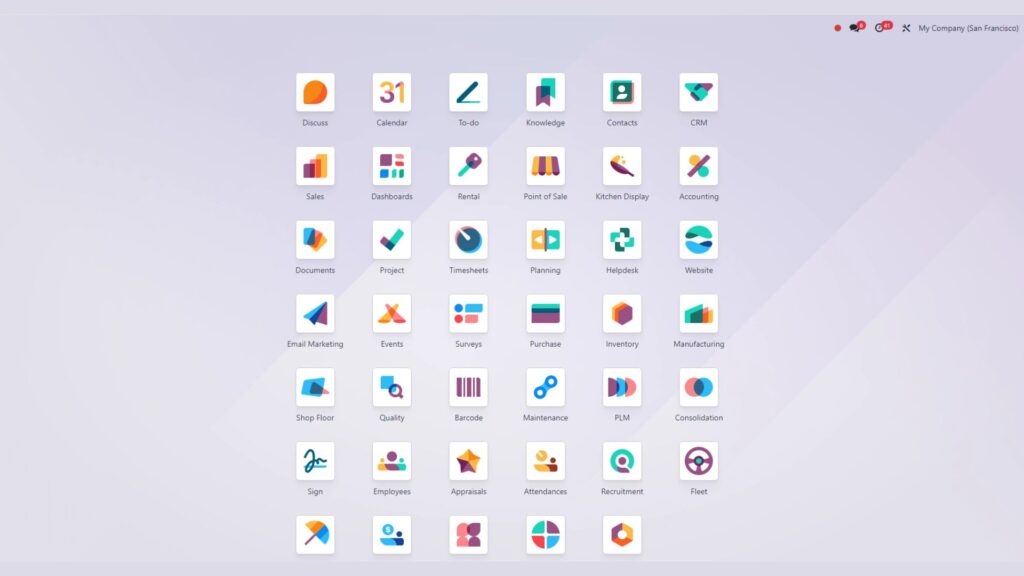
- QuickBooks: A household name in accounting software, QuickBooks now incorporates AI to enhance Its capabilities.
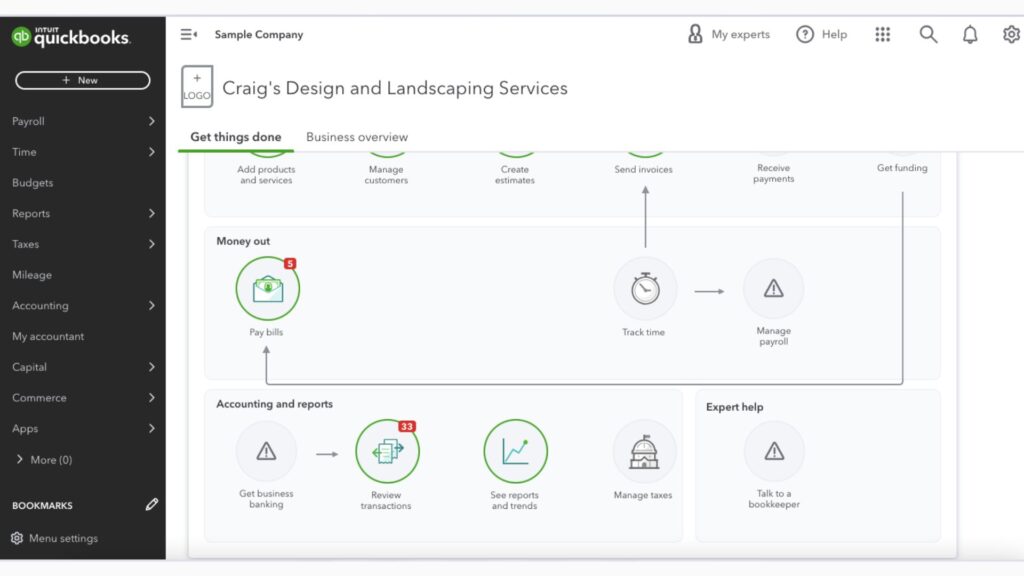
- Zeni: The AI-powered financial concierge automates bookkeeping tasks for startups and lean businesses.
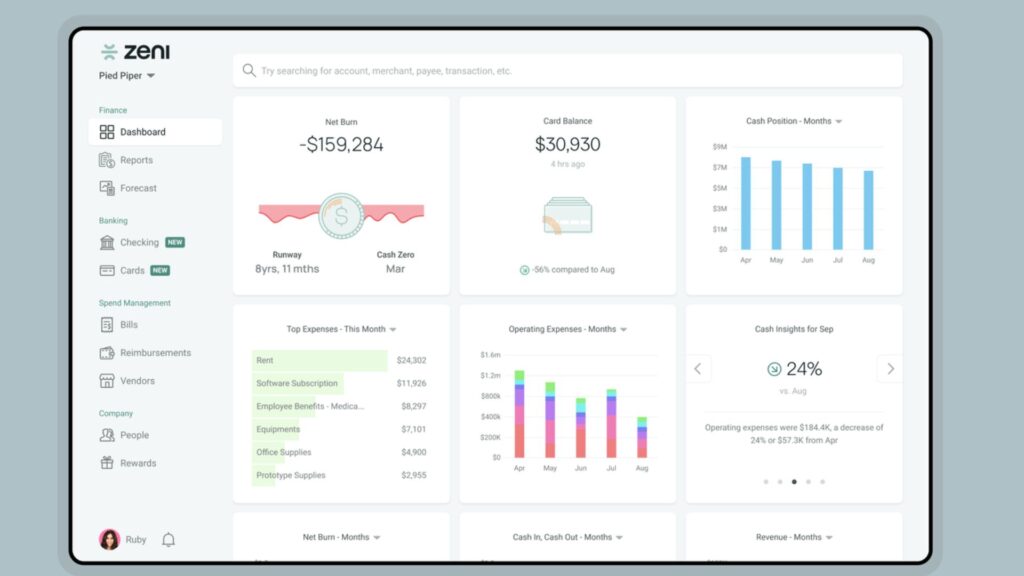
- Booke AI: This tool uses AI-driven RPA and generative AI to automate reconciliation, categorization, and extraction from financial documents.
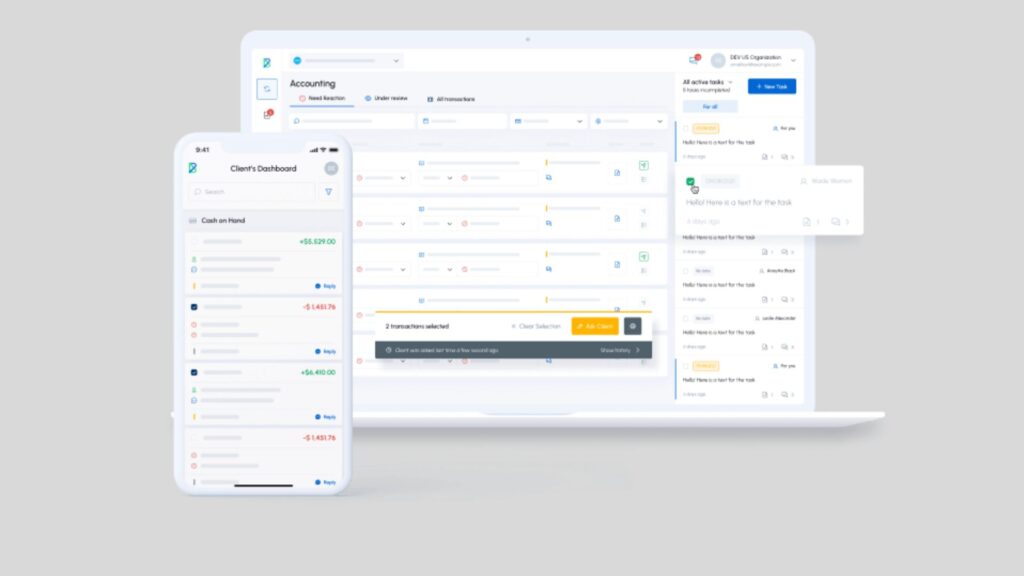
These tools not only automate routine tasks but also provide valuable insights and analytics to help businesses make informed financial decisions.
Evolving Role of Professionals
As AI tasks over many of the routine tasks in bookkeeping, the role of human bookkeepers is evolving. Rather than being replaces, bookkeepers are finding new opportunities to add value:
- Strategic Advisory: With more time freed up, bookkeepers can focus on analyzing financial data and providing strategic advice to businesses.
- AI oversight: Human expertise is still crucial in overseeing AI systems, ensuring they’re functioning correctly and interpreting results accurately.
- Complex Problem-Solving: While AI excels at routine tasks, human bookkeepers are needed to handle complex financial situations that require nuanced understanding and decision-making.
- Client Relations: The Human touch remains invaluable in maintaining client relationships and understanding unique business needs.
Challenges and Considerations
While the benefits of AI in bookkeeping are clear, there are challenges to consider:
- Initial Implementation Costs: Transitioning to AI-powered systems can be expensive upfront.
- Data Security Concerns: With increased reliance digital system, ensuring the security of sensitive financial data in paramount.
- Learning Curve: Staff may need training to effectively use and manage AI-powered bookkeeping tools.
- Over-reliance on Technology: It’s crucial to maintain human oversight and blindly trust AI outputs.
The Future Of AI in Finance
The integration of AI in bookkeeping is not just a trend; Its the future of the industry. CPAs and financial professionals are increasingly relying on AI technologies like Chat GPT to perform tasks more accurately and efficiently. Looking a head, we can expect:
- AI Agents: Specialized AI systems that take ownership of specific workflows, interacting directly with business leaders and staff.
- Enhanced Fraud Detection: AI will become even more adept at identifying potential fraud and financial irregularities.
- Predictive Analytics: AI will offer more sophisticated financial forecasting and budgeting capabilities.
- Seamless Integration: AI Bookkeeping tools will become more integrated with other business system for a holistic approach to financial management.
Embracing AI In Finance
For business considering the leap into AI-powered financial management, here are some tips:
- Start Small: Begin by automating one or two processes to see how AI can benefit your specific needs.
- Invest in Training: Ensure your team is well-equipped to work alongside AI tools.
- Choose the Right Tools: Research and select AI bookkeeping solution that importance of human expertise in financial management.
- Stay Informed: Keep up with the latest development in AI bookkeeping to ensure you’re leveraging the most advanced tools available.
The integration of AI and automation in bookkeeping is not just changing how we manage finance; it’s revolutionizing the entire field. By embracing these technologies, businesses can enjoy more accurate, efficient, and insightful financial management, freeing up human talent to focus on strategic growth and innovation. The future of bookkeeping is here, and it’s smarter than ever.
Embracing The Future Of Bookkeeping
As we’ve see, AI and automation are not just changing bookkeeping-they’re revolutionizing it. From increased accuracy to real-time insights, the benefits are clear. But remember, human expertise is still crucial in this new landscape. I believe the key to success is finding the right balance between AI and human skills. BY embracing these new technologies and adapting our roles, we can create a more efficient, accurate, and insightful approach to financial management. The future of bookkeeping is here, and it’s smarter then ever.
Conclusion
AI and automation are transforming finance, making management more accurate and efficient. As technology evolves, Professionals will grow to play a vital role in overseeing AI and editing strategic value to business. Embrace the future of smarter, more efficient financial management.

